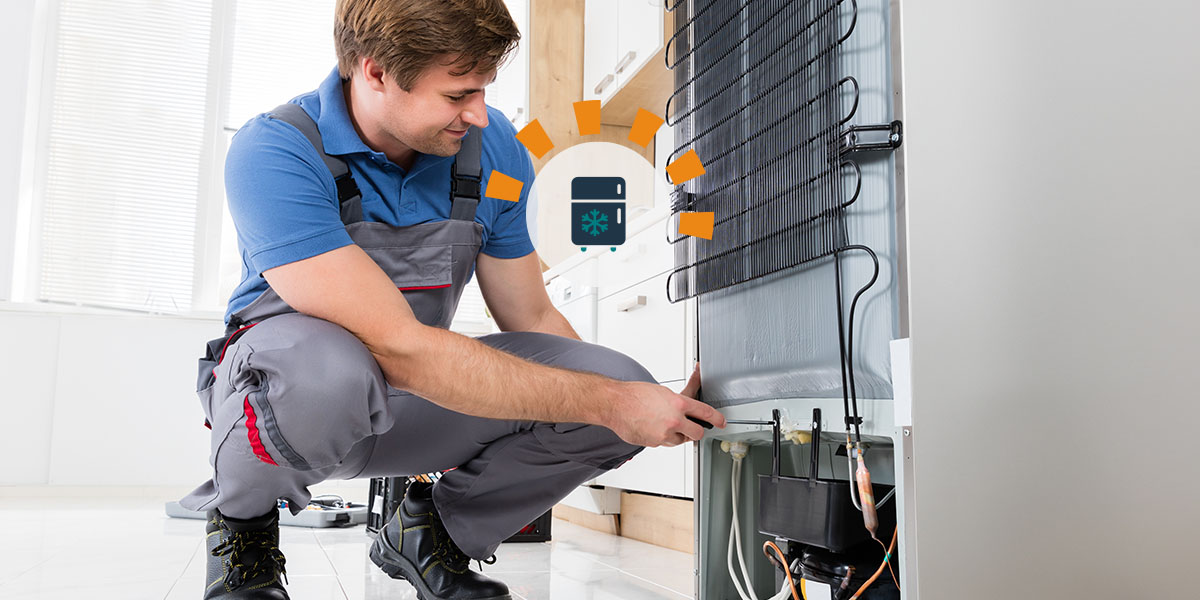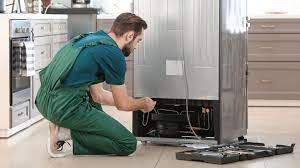At TheKitchenApplianceDad.com, we understand that dealing with the refrigerants in your appliance, like Freon, is a task that often raises concerns and questions amongst homeowners. Whether you are replacing an old fridge or repairing it, knowing who is qualified to handle Freon – a substance crucial for the cooling process but harmful to the environment if released improperly – is essential.
Freon is a trade name for a class of chemicals known as chlorofluorocarbons or CFCs, used predominantly in air conditioning, refrigeration, and aerosol propellants. Due to their ozone-depleting properties, CFCs have been phased out under the Montreal Protocol, and modern refrigerators now use more environmentally friendly refrigerants. However, many older models still contain Freon.
Handling Freon is not just a technical issue but also a legal and environmental one. In the United States, the Environmental Protection Agency (EPA) regulates the handling, recycling, and disposal of refrigerants. According to the EPA, only certified technicians are allowed to remove Freon due to its harmful effects on the ozone layer.

The primary qualification for someone to legally remove Freon from a refrigerator is an EPA certification. Technicians must pass an exam to become certified in handling refrigerants. These certifications are categorized into three types:
A technician needs to have at least a Type I certification to handle Freon in residential refrigerators.
Most HVAC (heating, ventilation, and air conditioning) professionals have the necessary EPA certification to handle Freon. They are trained not only in refrigerant handling but also in the proper disposal procedures to ensure that Freon does not escape into the atmosphere.
To find a qualified technician to remove Freon from your refrigerator, you can:
While it might be tempting to attempt to remove Freon on your own, especially if you are familiar with DIY projects, it is important to understand the risks and legal implications. Removing Freon requires specific tools and knowledge to prevent any release into the atmosphere. Moreover, improper handling can result in hefty fines and significant environmental damage.
Once Freon is removed, it must be recycled or disposed of according to EPA regulations. Certified technicians will often have a recovery machine that collects the Freon without releasing it. This not only protects the environment but also ensures compliance with the law.
The cost of removing Freon from a refrigerator can vary based on location, the amount of Freon to be removed, and any additional services such as appliance disposal. Generally, you can expect to pay between $50 to $150 for Freon removal. It’s a good idea to get a few quotes from different technicians before deciding.
Delaying the removal of Freon can pose several risks, including leakage, which can harm the ozone layer and contribute to global warming. If you plan to dispose of an old refrigerator or repair one that uses Freon, arrange for its proper removal as soon as possible.
At TheKitchenApplianceDad.com, we always recommend handling kitchen appliances with care, especially when it involves substances like Freon. Always ensure that you hire a certified professional to handle the removal and disposal of Freon from your refrigerator. This approach not only complies with legal standards but also safeguards our environment.
Handling kitchen appliances responsibly is a testament to your commitment to sustainability and legality. Always opt for professional services to ensure safety andcompliance.

